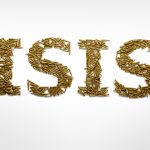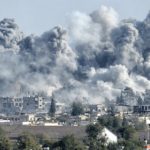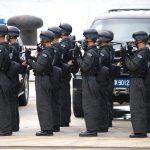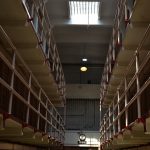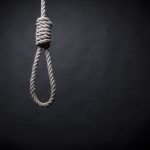Hung Jury in NSW Supreme Court Foreign Fighter Case
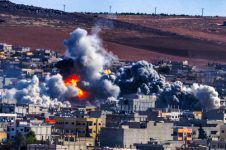
The NSW Supreme Court jury considering the ‘foreign fighter ‘charges of Kurdish-Australian journalist Renas Lelikan was dismissed on 6 December 2019, when it failed to a verdict after four weeks of deliberations.
When the trial began in early October, Mr Lelikan’s criminal defence barrister Phillip Boulten SC told the court that while his client was with Kurdish fighters along the mountainous border region between southern Turkey and northern Iraq, he had no intention of engaging in armed conflict.
The lawyer submitted that his client had travelled to the region in 2012 in the capacity of a journalist in order to record, write, photograph and publish what he witnessed.
However, prosecutor Paul McGuire SC asserted that the defendant had intended take part in armed conflict, making clear the Crown did not need to prove that Lelikan had actually fought, only that he had the intention of doing so.
The 40-year-old Kurdish man – who was born in Turkey and came to Australia in 1996 – pleaded not guilty to having the intention to engage in hostile activities in a foreign country.
However, he did plead guilty to being a member of a group listed as a terrorist organisation, namely the Kurdistan Workers Party (PKK).
Abbott’s counterterrorism hat trick
Mr Lelikan was charged in regard to engaging in armed conflict under the provisions created by the Abbott government’s Foreign Fighter Bill. The 2014 legislation had the aim of dealing with the threat Australians who travel abroad to engage in foreign conflicts pose to national security.
The bill was the second tranche of three pieces of draconian national security amendments the government introduced at the time. This included an amendment bill, which strengthened the operating processes of ASIO and other security agencies.
The third piece of legislation heralded in the government’s metadata regime that now requires all telecommunications companies to store clients’ metadata for the period of two years, so 21 law enforcement and security agencies can access this information without a warrant.
A foreign fighter charge
The jury couldn’t come to an agreement on whether Mr Lelikan was guilty of one count of entering a foreign country with the intention of engaging in hostile activities, contrary to section 119.1 of the Criminal Code Act 1995 (Cth).
The offence had existed prior to Abbott’s amendment bill, but this legislation moved it and other offences that were contained in the now repealed Foreign Incursions and Recruitment Act into the Criminal Code.
And due to these changes, Mr Lelikan was facing life imprisonment, rather than the 20 year maximum penalty that previously stood.
The membership offence
NSW Supreme Court judge Lucy McCallum didn’t pass judgement on the terrorist organisation membership charge that Lelikan pleaded guilty to, as it could have impacted the prosecution’s possible future case in regard to the foreign fighter charge.
Mr Lelikan had pled guilty to being a member of the PKK. Section 310J of the Crimes Act 1900 (NSW) makes it a crime to knowingly be a member of a terrorist organisation. And an individual convicted of this offence is liable to up to 10 years behind bars.
The PKK is a far-left political organisation with an armed wing based in Turkey and Iraq that was initially fighting for a separate and independent Kurdish state, but has now changed its aims to seeking equal rights and autonomy in Turkey.
Writing in the Green Left Weekly Peter Boyle outlined that the PKK and other Kurdish forces fighting in Syria and Iraq have been the strongest opponents of Islamic State. And they’ve helped liberate many towns and villages that were under militant control.
A disputed classification
Home affairs minister Peter Dutton relisted the PKK as a proscribed terrorist organisation in August last year. The group was first placed on the terrorist list by the Australian government back in December 2005.
However, there are growing calls to remove the PKK from the list. For an organisation to be classed as terrorist, the minister must be reasonably satisfied it “is directly or indirectly engaged in, preparing, planning, or assisting in or fostering the doing of a terrorist act” or advocates terrorism.
In a submission to a parliamentary committee the group Australians for Kurdistan outlined that the PKK’s armed wing only engages in conflict with the Turkish state and its security forces. The support group stressed that the PKK never target civilians in any of their actions.
While Australia, the United States, the United Kingdom and New Zealand continue to list the group as a terrorist organisation, the United Nations and countries such as Switzerland, Russia, India and China do not.
The European Union General Court recently annulled it’s 2014 to 2017 listing of the PKK as a terrorist group, as it was found there were no stated reasons for the classification. However, the EU had already relisted the group on its 2018 list prior to this judgement and so it remains there.
Ongoing limbo
Mr Lelikan was initially charged with just being a member of a terrorist group back in July 2016. He was subsequently granted bail in October that year, after it was heard that he was being harassed by inmates that supported the Islamic State, whilst being held in Goulburn supermax prison.
Prior to arriving back in Australia in October 2015, the journalist had spent nine months in an Iraqi refugee camp that was under threat from Islamic State militants. DFAT provided him with temporary travel documents to return, after refusing to issue him with a new passport in January that year.
During his recent trial, it was heard that Mr Lelikan set himself alight outside Sydney’s Town Hall in 1999, during a Kurdish freedom demonstration. He was heard to call out, “I did this for peace in Kurdistan”, prior to suffering burns to 80 percent of his body.
On 15 February, a follow up court hearing will be told whether the prosecution intends to ask for a retrial. Mr Lelikan is currently at liberty on bail.



